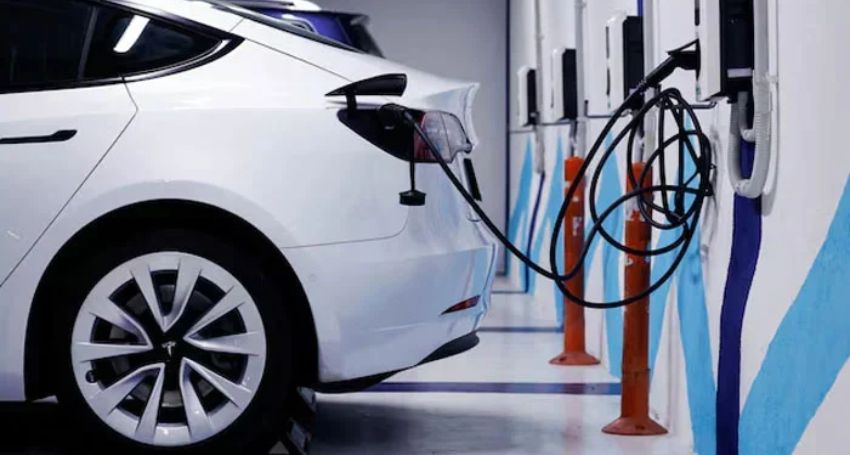
Exploring Green Travel: Electric Motorcycles in Kenya
The Kenyan market has witnessed a significant shift in transportation with the introduction of electric vehicles, specifically electric motorcycles. Electric motorcycles are increasingly becoming a common sight on Kenyan roads, from the bustling streets of Nairobi to the coastal city of Mombasa. This trend is a testament to Kenya’s commitment to green energy and environmental sustainability, a move that is reshaping the country’s transportation landscape. Electric motorcycles in Kenya are powered by advanced battery technology, which is significantly changing the African market’s transportation sector. These battery-powered motorbikes eliminate the need for traditional fuel, leading to a substantial reduction in running costs. The maintenance costs associated with electric motorcycles are also considerably lower due to fewer mechanical parts, making them an attractive option for motorcycle dealers and consumers alike. The Kenyan government’s commitment to environmental sustainability and reducing carbon emissions has played a pivotal role in the rise of electric vehicles. Several policies, including tax incentives for owners of electric motorcycles, have been implemented to promote green energy. These policies have not only made electric motorcycles more affordable but have also encouraged more Kenyans to adopt this eco-friendly mode of transportation.

Why are electric motorcycles gaining popularity in Kenya?
Electric motorcycles are gaining traction in the Kenyan market due to their numerous benefits over traditional motorbikes. With the escalating fuel prices in Kenya, the affordability of electric motorcycles, both in terms of running and maintenance costs, is a significant factor driving their popularity. The ability to recharge these battery-powered motorbikes at a fraction of the cost of refuelling traditional motorbikes is a considerable advantage. The Kenyan government’s policies and tax incentives aimed at promoting green energy and reducing carbon emissions have made electric motorcycles more accessible to the average Kenyan. This, coupled with the increasing awareness of the environmental impact of traditional motorbikes, has led to a surge in the popularity of electric vehicles. Furthermore, the performance of electric motorcycles, characterized by a smoother and quieter ride, is another factor contributing to their growing popularity, particularly in densely populated urban areas.
How do electric motorcycles contribute to green travel?
Electric motorcycles contribute significantly to green travel and environmental sustainability by reducing carbon emissions. Unlike traditional motorbikes that run on fossil fuels and emit harmful gases, electric motorcycles produce zero tailpipe emissions, making them a much greener alternative. Electric motorcycles, powered by advanced battery technology, promote energy efficiency, a key pillar of green energy. These electric vehicles convert a higher percentage of the electrical energy from the grid to power at the wheels, making them more economical to run and reducing their overall environmental impact. Moreover, electric motorcycles contribute to the sustainability of travel by promoting the use of renewable energy sources. The batteries used in these motorbikes can be charged using green energy sources such as solar or wind power, further reducing their carbon footprint. This alignment with green energy and environmental sustainability makes electric motorcycles an ideal choice for the future of transportation in the African market.

Roam Air: Revolutionizing Transport in Africa
Roam Air, a pioneer in the electric vehicles industry, is redefining transportation across the African market with its innovative electric motorbikes. With a steadfast commitment to environmental sustainability and technological innovation, Roam Air is not just a motorcycle dealer; it’s a catalyst for change, promoting green energy and sustainable transportation in Africa. The company’s electric motorbikes, designed and built with cutting-edge battery technology, deliver high performance while significantly reducing environmental impact. Roam Air is challenging the conventional transportation norms, transforming the daily commute, and contributing to a healthier environment in Africa. Roam Air’s electric motorbikes epitomize the company’s dedication to quality and sustainability. Equipped with the latest battery technology, these motorbikes offer an unparalleled riding experience. They are not only quieter and smoother but also more cost-effective than their gasoline counterparts. Roam Air’s electric motorbikes represent progress, heralding a future where transportation is not just about moving from one place to another, but also about preserving our planet for future generations. Beyond revolutionizing transportation, Roam Air is playing a vital role in stimulating economic growth in Africa. Through job creation and fostering innovation, the company is contributing to the socioeconomic development of the region. In a continent like Africa, where access to reliable and affordable transportation is often a challenge, Roam Air is making a significant difference, one electric motorbike at a time.
What sets Roam Air apart from other electric motorcycles?
Roam Air stands out in the electric vehicles industry with its unwavering commitment to quality, performance, and sustainability. The company’s electric motorbikes, built with advanced battery technology, ensure optimal performance and durability. They are designed to endure the challenging African terrain, providing a smooth and comfortable ride even on the roughest roads. Moreover, Roam Air’s electric motorbikes are powered by high-capacity batteries that offer a longer range than most other electric vehicles in the market. This allows riders in Kenya and other parts of Africa to travel longer distances without worrying about electricity supply. The motorbikes also feature fast-charging technology, enabling riders to recharge their vehicles quickly and conveniently. Roam Air’s electric motorbikes also stand out for their eco-friendly design. They generate zero emissions, helping to reduce air pollution and combat climate change. Unlike traditional motorbikes that run on fossil fuels, Roam Air’s motorbikes are powered by green energy, making them a sustainable and environmentally friendly choice for transportation in the African market.
How is Roam Air contributing to sustainable travel in Africa?
Roam Air is making significant strides in promoting sustainable travel in Africa. By offering a green energy alternative to traditional motorbikes, the company is helping to reduce Africa’s carbon footprint. Each Roam Air electric motorbike on the road signifies a step towards a cleaner and healthier environment. Roam Air is also committed to educating the public about the benefits of electric vehicles. Through various initiatives and campaigns, the company is raising awareness about the environmental impact of traditional transportation and the potential of electric motorbikes to mitigate this impact. Moreover, Roam Air is investing in infrastructure to support the adoption of electric vehicles. The company is building charging stations across Africa, improving the electricity supply for riders to recharge their motorbikes. By facilitating the transition to electric transportation, Roam Air is not only contributing to environmental sustainability but also paving the way for a sustainable and prosperous future for Africa.

The Impact and Future of Electric Motorcycles in Kenya
The advent of electric vehicles, particularly electric motorcycles, is revolutionizing the transportation sector in Kenya. This shift towards green energy is not merely a trend, but a transformative movement that is set to redefine the Kenyan and broader African market. The impact of these electric motorbikes is multi-dimensional, encompassing environmental sustainability, economic growth, and societal progress. One of the significant advantages of electric motorcycles in Kenya is their contribution to environmental sustainability. These vehicles, powered by electricity supply rather than fossil fuels, significantly reduce greenhouse gas emissions. Moreover, electric motorcycles require less maintenance compared to traditional motorbikes, translating into substantial cost savings over time. The introduction of electric motorcycles is also stimulating economic growth in Kenya. It is creating new job opportunities, especially in the manufacturing, sales, and maintenance sectors. Motorcycle dealers are witnessing a surge in demand for electric motorcycles, which is positively impacting the Kenyan economy.
What are the environmental benefits of electric motorcycles?
Electric motorcycles contribute significantly to environmental sustainability. One of their primary benefits is the reduction in greenhouse gas emissions. Unlike traditional motorbikes, electric motorcycles do not emit harmful gases such as carbon dioxide and nitrogen oxides. This not only aids in mitigating climate change but also improves air quality, particularly in urban areas where the use of motorbikes is prevalent. Another environmental advantage of electric motorcycles is noise reduction. Traditional motorbikes are known for their loud engines, contributing to noise pollution. In contrast, electric motorcycles operate quietly, minimizing noise pollution. This is particularly beneficial in densely populated areas, contributing to a more tranquil environment. Furthermore, electric motorcycles promote energy efficiency. They consume less energy compared to traditional motorbikes, resulting in lower operating costs. This makes them a sustainable transportation option, contributing to the conservation of natural resources.
What does the future hold for electric motorcycles in Kenya?
The future of electric motorcycles in Kenya is promising, driven by increasing environmental awareness, advancements in battery technology, and supportive government policies. As the Kenyan market continues to grapple with the impacts of climate change, the shift towards electric motorcycles is expected to accelerate. Technological advancements, particularly in battery technology, are expected to make electric motorcycles more accessible and affordable. Innovations in this field are likely to increase the range of electric motorcycles and reduce charging times, enhancing their convenience for users. Government policies also play a crucial role in shaping the future of electric motorcycles in Kenya. The Kenyan government has shown commitment to promoting green energy, including the use of electric motorcycles. This includes initiatives such as tax incentives for electric vehicles and investments in electricity supply infrastructure. With such support, the adoption of electric motorcycles in Kenya is set to rise, heralding a new era in the country’s transportation sector.



